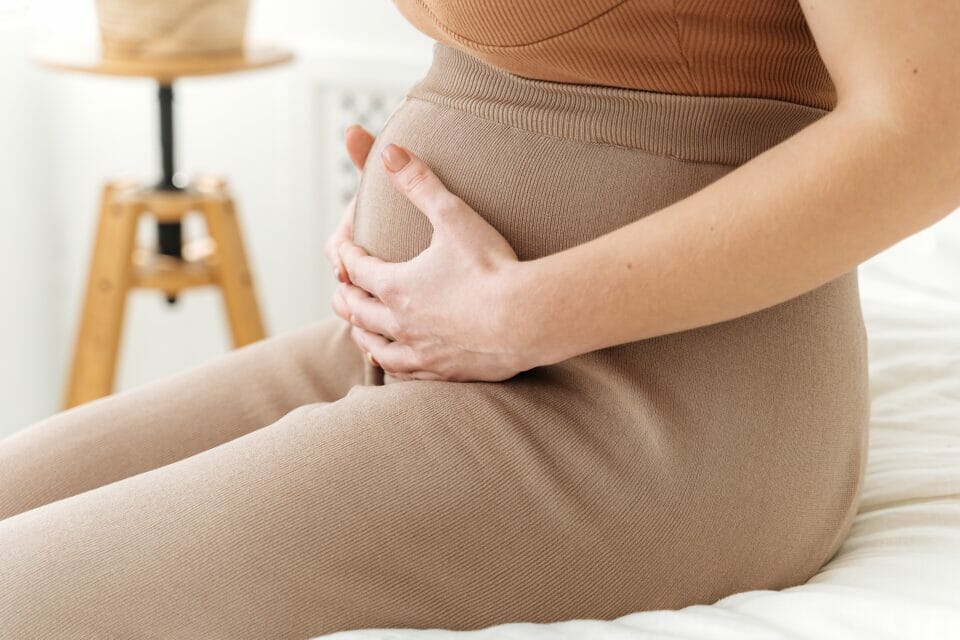If you are pregnant, take some time to jump for joy, excitement and feel grateful for the blessing of caring for another life inside of you, before diving into the world of parental responsibilities.
The first trimester of pregnancy lasts from week 1 through approximately the end of week 13 of pregnancy, which is about 1 to 3 months. We are going to look at what to do in your first trimester of pregnancy.
When you have a healthy habit, it helps your baby to thrive in the first trimester of pregnancy.
Although you can not be protected against every complication, but you can lower the risks by following a few healthy guidelines early in your pregnancy so as to have a healthy pregnancy.
As a new parent, your work starts now. During Pregnancy, there are some things to do and things not to do. Read on as I put you through the Do’s and Don’ts during your pregnancy, especially the first trimester.
What To Do In Your First Trimester Of Pregnancy
1. Take Folic Acid:
From the first trimester of pregnancy to the last trimester, your body needs folic acid, even after delivery, you still need it. You need to take 600 micrograms of folic acid daily in the first trimester of pregnancy. If you were not already taking folic acid supplements in advance of getting pregnant, please start immediately.
There are two common birth defects that are spina bifida and anencephaly. But with your intake of folic acid, it will help prevent this defect. Health practitioners recommend that not just those who are pregnant, but every woman from ages 15 to 45 should take 400 micrograms of folic acid daily.
Immediately after you are confirmed pregnant, your gynaecologist will recommend you take a prenatal vitamin. These vitamins are designed to meet the recommendations for folic acid the body needs.
2. Always Take Your Prenatal Vitamins:
Your body may probably be lacking lots of vitamins, which is why in your first trimester of pregnancy, your doctor will put you on prenatal vitamins. These vitamins help give your body iron, calcium, zinc, folic acid and everything your baby needs to grow and develop well.
These vitamins also provide the appropriate amounts of omega 3 like DHA (docosahexaenoic acid) and EPA (eicosapentaenoic acid). These two types of omega-3 fats help your baby’s brain develop properly.
3. See Food As Fuel:
Food serves as fuel to your body and the unborn baby. As time goes by during your pregnancy, your body will need more nutrients and calories, but that does not mean you should load your tummy with food. Instead of increasing your plate of food, why not increase the quantity of healthy food. During the first trimester of pregnancy, eat more greens and fruits.

4. Exercise:
Your body needs regular exercise in the first trimester of pregnancy and even till delivery time. Regular exercise helps you combat fatigue, mood swing and hormonal changes that happen in the first trimester of pregnancy. It also prevents weight gain and battles insomnia.
Fix regular exercise into your daily routine. If you don’t know how to go about it, there are several ways you can adopt a more active lifestyle, even during pregnancy. But before you begin any new exercise routine, talk to your doctor. Your gynecologist can consider your current state of health and what is best for your baby.
5. Take A COVID-19 Vaccine:
COVID-19 is dangerous to pregnant women and their babies. Pregnant women who get infected with COVID-19 are more likely to need hospitalization and intensive care. They are also more at risk of having preterm delivery, stillbirth and pre-eclampsia.
Research has proved that the COVID-19 vaccine is safe for those who are pregnant, planning on becoming pregnant or want to get pregnant in the future.
Talk to your doctor that you trust if you are feeling nervous about getting vaccinated while pregnant. Your provider can answer your questions and address any concerns you may have. Get vaccinated so that you can have a healthy pregnancy and baby.
6. Take Fruits And Veggies:
During the first trimester of pregnancy and beyond, don’t joke with fruits and vegetables. When you feel like snacking, you can make your plate colorful by mixing different fruits and veggies in it. Mix orange, carrots, bananas, red and green apples, blueberries, cucumber, spinach and more etc. These coloured foods give the most antioxidants and nutrients. And having a variety of diets will expose your unborn baby to a range of tastes and flavors because your baby eats what you eat through the amniotic fluid, so if you eat a wide variety of foods, your baby will also.
7. Sleep:
During the first trimester of pregnancy, your body goes through tremendous changes and is developing an entirely new life-providing system for your baby. As the placenta grows, you will likely find yourself exhausted in some days. And you are also going through monumental hormonal and emotional changes. Take as many naps as you can. If you work, during your lunch hour try to take a little bit of rest.
During the first trimester, you will need to sleep more than you used to at night. Set bedtimes and stick to them to give your body a solid eight to nine hours of sleep each night.

8. Take Your Tetanus Injection:
These injections help you heal faster without infection. This injection makes sure that the wound got from a virginal tear during delivery, or Cs cut heals without infection in the wound. In the first trimester of pregnancy, make sure to take your tetanus injection.
Read Also: Exercise For Pregnant Women
9. Get A Flu Shot:
It is encouraged that pregnant women should get a flu shot because according to the CDC, flu is more likely to cause severe illness in pregnant women than in those who are not pregnant.
Because of the changes in your immune system, (heart and lungs) a pregnant woman is more prone to serious illness from the flu. Research has shown that getting the flu while pregnant can raise your risk of complications, including premature labor, so taking the flu vaccine reduces that risk.
Even better, the flu vaccine can also protect your baby from contracting the flu after birth. When you get vaccinated during pregnancy, you’re passing on antibodies to your unborn baby. The vaccine will help protect your baby against the flu for the first few months after birth. So taking the flu vaccine gives you a healthy pregnancy.
10. Always Stay Hydrated:
Hydration helps prevent headaches, preterm labour, dizziness and kidney stones. Drinking water also helps fight conditions like constipation and haemorrhoids. To have a healthy pregnancy, it is important to always be hydrated. If your urine is light yellow to clear, it means you are not getting enough hydration. If it’s dark yellow, you need to increase your water intake. Take at least eight glasses of water daily to stay healthy
11. Make Sure Your Medications Are Safe Before Taking It:
Not all medications are safe for a pregnant woman. The bottle of aspirin you have been using to relieve headaches may not be safe for you to take while pregnant. Before you take anything, check this list of medications that are generally safe to use while pregnant. Native medicine may be harmful to you and your baby. It is safer to wait until after delivery before you can start some medication.
If you struggle with allergies, try to negate the need for medication by avoiding your allergy triggers.
Always talk to your doctor before starting any medications, herbs or supplements if you want a healthy pregnancy and baby..
12. Ask For Help:
During your first trimester of pregnancy, tiredness becomes the order of the day. Ask your partner or people around you to help out more by maybe picking up a few extra tasks around the house to ease your burden.
Do what you need to do to ensure you are getting enough rest, for your healthy pregnancy and for your growing baby by taking advantage of friends or family members to get help.. Having extra help or having fewer tasks to accomplish will give you more time to sleep well.
What Not To Do In Your First Trimester Of Pregnancy
1. Don’t Overeat:
Studies show that half of people gain too much weight during pregnancy. When that happens, the baby is at greater risk of obesity later in life. You will need additional calories in the second and third trimesters, but doctors disagree about whether you need any extra calories in this first trimester. Eat until you’re satisfied and then stop to protect the health of your baby.
2. Stop Or Reduce Intake Of Caffeine:
This is an especially tricky one in this first trimester of pregnancy because you are so very tired. Taking caffeine can cross the placenta and affect your growing baby’s heart rate.
Research suggests that taking up to about 200 milligrams a day or about two cups of coffee is OK in the first trimester of pregnancy. But studies also suggest that drinking too much caffeine might be associated with a greater risk of miscarriage. Just like they say, “Prevention is better than cure’’. Protect the health of your baby by reducing your caffeine intake.
3. Stop Eating Raw Meat:
Pregnant people who eat raw or undercooked meat and eggs are at risk of contracting listeriosis and toxoplasmosis. These can lead to serious and life-threatening illnesses and can cause serious birth defects and miscarriage.Cook your meat and eggs thoroughly before eating so as to protect the health of your baby.
4. Don’t Visit The Sauna:
Sauna and hot tub can be fun, but it is not safe for your unborn baby. There is a risk of overheating, dehydration and fainting every time you use a sauna, whirlpool, hot tub or steam room so it is best you avoid it. If you are looking to relax, soak in a hot bath instead, these protect the health of your baby.
5. Do Not Smoke:
If you are a smoker, there is no better time to quit than now. If you quit smoking, you will give your health a boost and protect the health of your baby. Talk with your doctor today about ways to quit.
According to the CDC, smoking while pregnant comes with risks. People who smoke during pregnancy are more at risk of miscarriage. Babies born to those who smoked during pregnancy are at increased risk for birth defects, infant death, low birth weight and premature birth.
These babies also are at greater risk for learning disabilities. Smoking during and after pregnancy is also a risk factor for Sudden Infant Death Syndrome (SIDS). And babies born to people who smoked during pregnancy are more likely to become smokers earlier themselves due to physiologic nicotine addiction.
What about electronic cigarettes? The CDC says that while the aerosol of e-cigarettes typically has fewer harmful substances than cigarette smoke, e-cigarettes that contain nicotine aren’t safe during pregnancy. The nicotine alone is a health danger for pregnant people and developing babies. It can also damage a developing baby’s brain and lungs.
6. Stop Drinking Alcohol:
There is no amount of alcohol that is safe during pregnancy. And there is no time during pregnancy when alcohol does not carry risks.
Drinking alcohol while pregnant can cause problems for a developing baby at any stage. Drinking alcohol anytime in the first trimester of pregnancy can cause central nervous system problems and abnormal facial features and growth. Drinking alcohol later in pregnancy can lead to miscarriage, stillbirth and (FASDs). These disorders are a range of behavioural and intellectual disabilities. Protect the health of your baby by staying away from alcohol during pregnancy. Children with fetal alcohol spectrum disorders FASDs may have:
- Abnormal facial features
- Poor memory and coordination
- Difficulty paying attention
- Learning disabilities and difficulties in school
- Speech delay
- Lower IQs
- Poor reasoning and judgment skills
- Sleep and sucking problems as infants
- Vision and hearing problems
- Problems with the heart, kidney or bones
If you have been drinking during pregnancy, it is not too late to stop. The sooner you stop, the better you protect the health of your baby.
7. Take Care Of Yourself:
This list of what to and what not to do in the first trimester of pregnancy may seem a bit intimidating. But don’t let it scare you. Most of these guidelines can be easily summed up by taking care of yourself. Be sure to eat healthy foods, drink lots of water and get enough sleep.
Read Also: 17 Healthy Food For Breastfeeding Mom
Conclusion
With all this what to do in your first trimester of pregnancy, in all, take good care of your health. Before you know it, your little one will finally be here. When you hold and snuggle with your newborn, remember to thank yourself for following this list of do’s and don’ts months ago in your first trimester of pregnancy. A healthy pregnancy and a happy baby make it all worthwhile.




